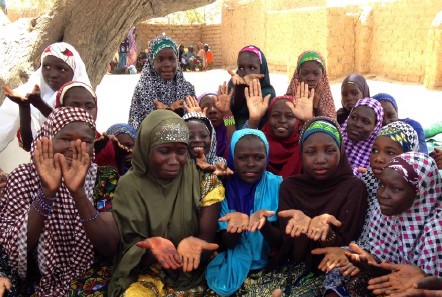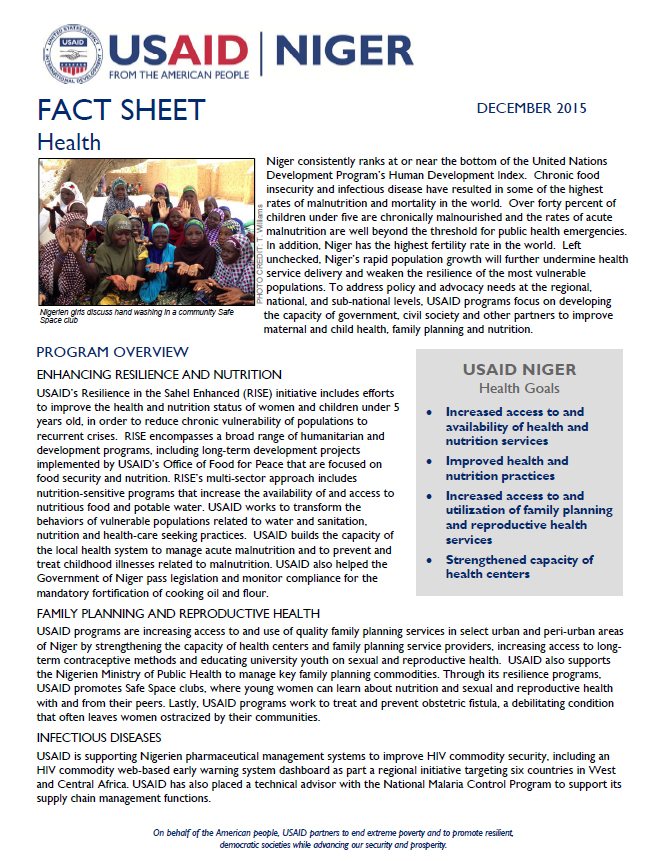
Niger consistently ranks at or near the bottom of the United Nations Development Program’s Human Development Index. Chronic food insecurity and infectious disease have resulted in some of the highest rates of malnutrition and mortality in the world. Over forty percent of children under five are chronically malnourished and the rates of acute malnutrition are well beyond the threshold for public health emergencies. In addition, Niger has the highest fertility rate in the world. Left unchecked, Niger’s rapid population growth will further undermine health service delivery and weaken the resilience of the most vulnerable populations. To address policy and advocacy needs at the regional, national, and sub-national levels, USAID programs focus on developing the capacity of government, civil society and other partners to improve maternal and child health, family planning and nutrition.
PROGRAM OVERVIEW
ENHANCING RESILIENCE AND NUTRITION
USAID’s Resilience in the Sahel Enhanced (RISE) initiative includes efforts to improve the health and nutrition status of women and children under 5 years old, in order to reduce chronic vulnerability of populations to recurrent crises. RISE encompasses a broad range of humanitarian and development programs, including long-term development projects implemented by USAID’s Office of Food for Peace that are focused on food security and nutrition. RISE’s multi-sector approach includes nutrition-sensitive programs that increase the availability of and access to nutritious food and potable water. USAID works to transform the behaviors of vulnerable populations related to water and sanitation, nutrition and health-care seeking practices. USAID builds the capacity of the local health system to manage acute malnutrition and to prevent and treat childhood illnesses related to malnutrition. USAID also helped the Government of Niger pass legislation and monitor compliance for the mandatory fortification of cooking oil and flour.
FAMILY PLANNING AND REPRODUCTIVE HEALTH
Niger - Global Health fact sheet ![]() (pdf - 157k)
(pdf - 157k)
USAID programs are increasing access to and use of quality family planning services in select urban and peri-urban areas of Niger by strengthening the capacity of health centers and family planning service providers, increasing access to longterm contraceptive methods and educating university youth on sexual and reproductive health. USAID also supports the Nigerien Ministry of Public Health to manage key family planning commodities. Through its resilience programs, USAID promotes Safe Space clubs, where young women can learn about nutrition and sexual and reproductive health with and from their peers. Lastly, USAID programs work to treat and prevent obstetric fistula, a debilitating condition that often leaves women ostracized by their communities.
INFECTIOUS DISEASES
USAID is supporting Nigerien pharmaceutical management systems to improve HIV commodity security, including an HIV commodity web-based early warning system dashboard as part a regional initiative targeting six countries in West and Central Africa. USAID has also placed a technical advisor with the National Malaria Control Program to support its supply chain management functions.








Comment
Make a general inquiry or suggest an improvement.